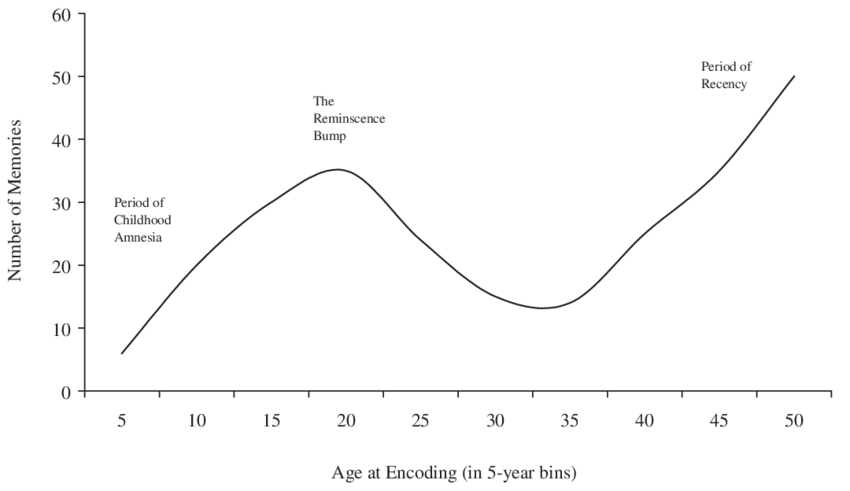What is 'Nostalgia', and why do we experience it?
Have you ever wondered why music has such a powerful ability to reawaken a completely dormant memory, something that has been gone for as long as you can remember...
What is 'Nostalgia', and why do we experience it?
My childhood’s home I see again and saddened by the view and still as memory crowds my brain, there’s pleasure in it too.
- Abraham Lincoln
Why do certain songs stay stuck in our heads? Why does music have the ability to evoke memories?
Have you ever wondered why music has such a powerful ability to reawaken a completely dormant memory, something that has been gone for as long as you can remember, but then after ten or fifteen years, you listen to the same song and bam! You are just where you were at that moment. That memory could be good or bad, but the essential issue is, what is nostalgia?
What is nostalgia?
Nostalgia and feelings of emotions caused by music or dancing, as well as songs becoming stuck in your brain, all revolve around a similar theme - "Your Identity".
Have you ever wondered who you are? Every day, you lose atoms and gain new ones due to what you eat or drink. It takes around five years to replace every atom in your body, which implies that the stuff we call you today did not exist five years ago.
So, what is the common denominator here? What exactly are you? Nostalgia, or lovingly recalling the past, what you used to do, and who you used to be, might be your brain's method of answering the question.
This occurred on a microscopic level, yet even on a macroscopic level, things are continuously altering. We constantly have changing friends, new behaviours, distinct moods, and varying tastes.
Johannes Hofer invented the phrase "Nostalgia" in 1688 by combining the Greek terms for "Returning Home" and "Pain." Nostalgia was once thought to be a terrible medical illness that affected soldiers who longed home so much that they broke down and could not perform their responsibilities. The only answer, according to Hofer, was to send them home.
Nostalgia is ultimately about YOU. Your memories, your history, who you used to be and, as a result, who you are today, making nostalgia an often-healthy method to answer the question, "Who am I?" You, on the other hand, are a person who recalls actual occurrences from the past. You have existed in the past and are a living person.
You change, your habits change, your friends change, your work changes, you learn and forget things, but nostalgia helps you link all of those experiences, which is especially useful during significant life transitions such as entering adulthood or ageing.
Why don’t we feel nostalgic for everything in the past?
Why don't you feel nostalgic for what happened a minute ago? Why aren't you feeling nostalgic while you read this blog? The answer to all of these questions may be found within a curve known as the "Lifespan Retrieval Curve."
It is a typical pattern of unique autobiographical recollections that exhibits a phenomenon known as reminiscence bump. A period between the ages of 15 and 30 when more memories are encoded. This period in your life is regarded to be significant since it is so closely tied to the creation of our self-identities.
The memories generated during the plot's reminiscence bump tend to be the ones we are most nostalgic about. We constantly want our continued identities to be positive, so we are nostalgic for pleasant memories rather than unpleasant ones.
Why does music cause us to be nostalgic?
We do not always get along or understand each other, but when two individuals listen to or respond to music, their sentiments and emotions might become more similar than if they sat in silence or spoke without rhythm.
Sharing a musical experience with another person may be an extreme version of the communication abilities that were naturally chosen into us so that we could understand each other, comprehend a gesture from a tone of voice, and listen.
A mouthful of cheesecake might become stuck in your throat if not correctly eaten. A brief, repeated tune, on the other hand, might get ingrained in your mind. It is known as an earworm. At best, this indicates that the music is catchy. At worst, it means listening to the same music over and over in your brain until you become tired of it.
When we hear music, it can evoke a wide range of different feelings. One fundamental explanation for this is because light, scent, and music are initially processed in the same part of the brain that processes memories and emotions, such as the amygdala.
Conclusion
So, perhaps, memories are the answer to everything. You may not have the same friends, career, house, or atoms throughout your life, but you will have the same memories.
So, are you nothing more than your memories?
Author
Shivangi Singh
Dr. D. Y. Patil Biotechnology and Bioinformatics Institute
Pune, India

